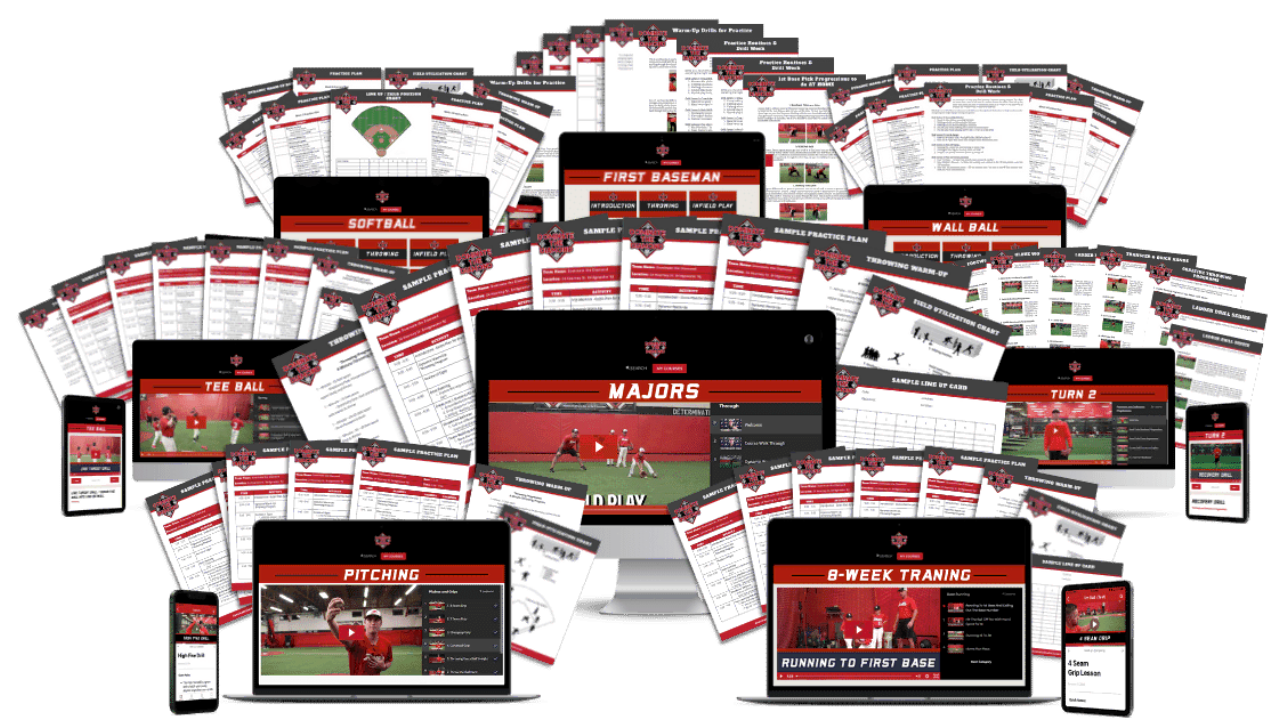How to Set Clear Playing Time Guidelines For Your Youth Baseball Team Before the Season Begins

As youth baseball coaches, one of our most challenging tasks each season is managing playing time. It’s a dynamic that impacts not just players but their parents as well. The beginning of the season is the perfect time to set clear expectations for everyone involved: coaches, parents, and players. In this article, we dive into effective strategies to manage and communicate playing time, ensuring fair play and fostering a positive and inclusive team environment.
Start the Season Off with Clear Communication
Start the season right by defining your coaching philosophy – are you aiming to win at all costs, or is developing players your primary goal? This philosophy will guide your decisions on playing time. It’s crucial to align with your assistant coaches to present a united front. Hold a pre-season meeting with players and parents to discuss your approach and expectations.
We believe that at the recreation level, under 12U, coaches should let everyone bat. This approach allows all players game-like experience with hitting and helps all players feel included, which boosts morale and enjoyment.
Engaging with Parents on Playing Time Issues
Parents play a crucial role in supporting their children. Encourage them to focus on the positives, regardless of how much their child plays. They should foster resilience by emphasizing effort and teamwork over playing time. Parents should also direct their children to speak directly with coaches if they have concerns about playing time. This encourages young athletes to take responsibility and communicate effectively.
One effective strategy is for parents to ask their children reflective questions like, “How do you think you can contribute more during games?” instead of making comments towards coaching decisions.
Setting Expectations with Players
At the start of the season, it's crucial to discuss playing time expectations with your players. Clearly explain that playing time isn’t just handed out; it’s earned through hard work, punctuality, and sportsmanship. During your first team meeting, outline the criteria for earning playing time, emphasizing that effort, attitude, and adherence to team rules are just as important as skill. Additionally, make it clear that consequences for not following team rules, such as sitting out for showing up late, apply to everyone equally.
For example, if a player misses practice before a game, they should expect limited playtime, regardless of their skill level. This policy should be universally applied, from the star batter to the last player on the roster.
Empowering Teams Through Fair Play
Managing playing time is not just about being fair but about being transparent and proactive in communication. By setting clear expectations, maintaining open lines of communication, and fostering an environment of equality and respect, coaches can help create a positive and productive team atmosphere. We advocate that the role of the coach isn’t just to win games but to develop young athletes who appreciate the values of hard work, teamwork, and sportsmanship.
This balanced approach not only improves the individual players but also strengthens the team as a whole, making every season a success, both on and off the field.
Looking for some pre-made practice plans with stations already planned for you? Check out our Pre-Made Practice Plans here.









